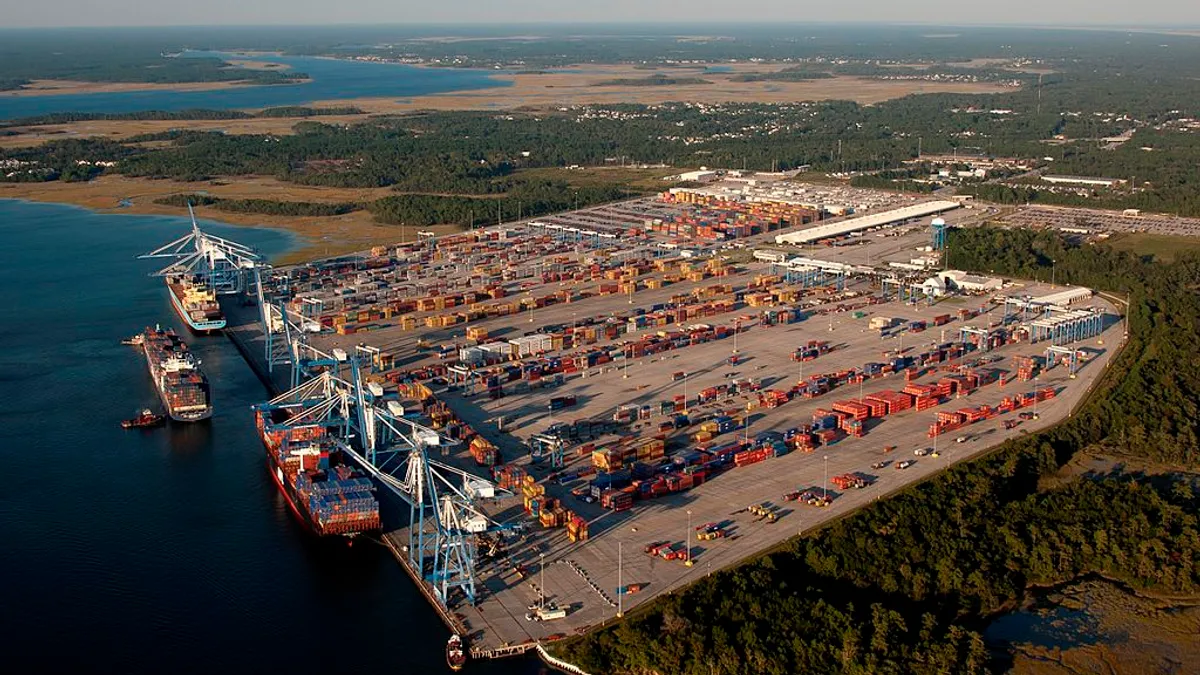Dive Brief:
- The Port of Savannah will experience a two-year delay to its port improvement projects as a recent study revealed a cost increase of 38% and pushed back the timeline by two years, the Atlanta Journal Constitution reported last week.
- The U.S. Army Corps of Engineers calculated the deepening the shipping channel 42 to 47 feet would actually cost $973 million, or $267 million more than previously predicted.
- The estimated change in cost are at the root of delays due to contract procurement regulations. However, the study also revealed an increase in the project's economic benefit from $5.50 to $7.30.
Dive Insight:
The slowing progress on the Port of Savannah and the corresponding need for increased government funding at a time when the entire U.S. infrastructure is struggling is worrisome.
Although the administration has placed a high priority on infrastructure, nearly all congressional delegations will be fighting for their own infrastructure projects with equal vigor in anticipation of a broader bill. For example, the locks on the Ohio River are more than 20 years behind on funding for desperately needed improvements.
Equally worrisome is the change in projected cost. East Coast ports have been betting on dredging projects to attain port dominance in the wake of post-Panamax capacity increases, and funding is the last delay they need.
As shipping lines change the types of vessels traversing their new alliance networks, they will make port of call choices based on those with the infrastructure available to unload their ships. East Coast ports have more than just larger cranes up their sleeves in their quest for greater market share (many are increasing cold chain capacity, too), but delays are unwelcome news.
Yet West Coast ports are unlikely to profit from the delay. Like all other ports infrastructure, they face their own struggles, with nearby road congestion foremost on the list. Without unprecedented action by the Trump administration, the two year delay from the East will seem like a drop in the bucket. No one wins when the entire infrastructure system suffers.














